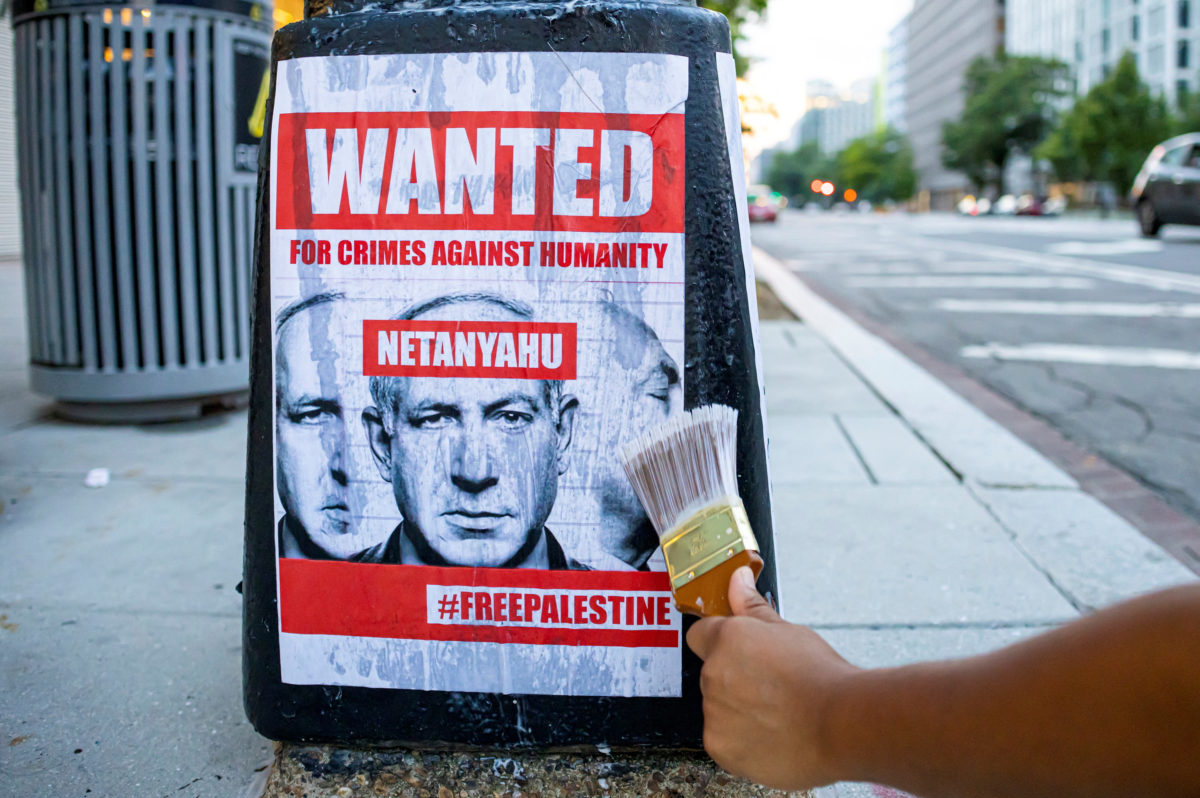
Wanted poster on the streets of Washington, DC
Warsaw, January 11 (RHC)-- Following the visit of the Prime Minister of Israel, Benjamin Nentayahu to Poland, the UN special rapporteur on human rights in the occupied Palestinian territories, Francesca Albanese, urged the Government of the European country to comply with the principles of universal justice in the face of the arrest warrant issued by the International Criminal Court (ICC).
Albanese expressed his concern on social media, stressing that all ICC members are obliged to arrest persons subject to arrest warrants. His statement highlights the apparent contradiction in the stance of Poland, which has criticised the lack of action by other countries in similar situations, sparking a debate on the selective application of the law and its impact on international justice.
The context of this discussion lies in the fact that on November 21, the ICC issued arrest warrants against Netanyahu and his former military affairs minister, Yoav Gallant, accusing them of “war crimes and crimes against humanity” linked to the recent escalation of violence in Gaza, a genocide that has already left almost 46,000 dead, most of them women and children.
Despite the ICC order, the Polish government indicated that Netanyahu will not be arrested if he attends the commemoration of the 80th anniversary of the liberation of Auschwitz on January 27, a date of great relevance for Poland, as it represented the end of one of the greatest horrors in history, where approximately 1.1 million people, mostly Jews, were murdered during the Holocaust.
The presence of the Israeli prime minister is even more incoherent, since Netanyahu himself is one of those responsible — with the support of the West — for a crime against humanity of the same kind being carried out in Gaza.
This has led to massive demonstrations in Warsaw and other cities, where thousands of Poles have gathered to demand that their government respect the ICC resolutions and act in a manner consistent with the principles of international justice.
The protesters oppose what they consider a double-standard policy by their country in granting immunity to a leader accused of serious human rights violations.
The Polish government's decision to allow the participation of Israeli officials has been interpreted by many as an act of complicity rather than a tribute to the victims of the Holocaust.
Poland, as a member state of the ICC, has a legal obligation to act on arrest warrants issued by the court. However, the ICC lacks effective mechanisms to enforce these warrants, raising questions about the effectiveness and credibility of the international justice system.
Poland's response to these tensions reflects a broader concern about international relations and foreign policy, especially in a complex geopolitical context.
The decision to join the Holocaust commemoration without complying with international obligations could have repercussions on its reputation and its relations with other states.
On the other hand, the controversy also falls within a broader context of political decisions in countries such as the United States, which have adopted legislation sanctioning ICC officials. This suggests that decisions on international justice may be influenced by political and strategic factors.
As the situation progresses, protests in Poland are likely to continue and the debate on universal justice and human rights will remain relevant on the public agenda.
[ SOURCE: PRESS TV and NEWS AGENCIES ]

